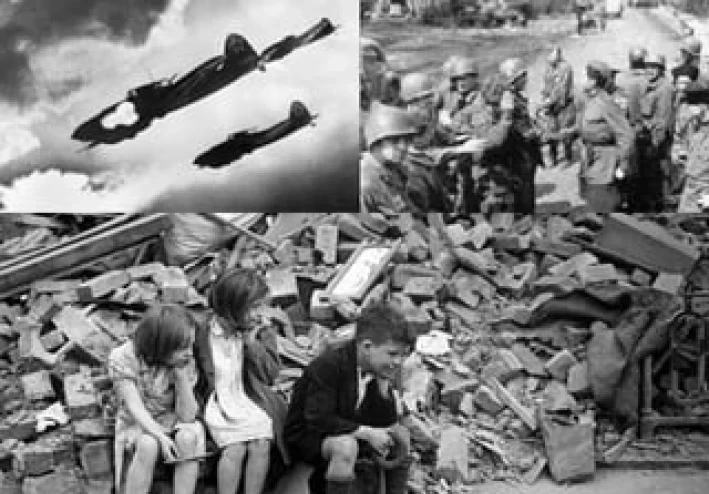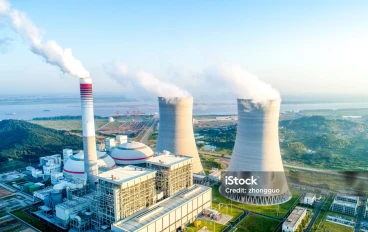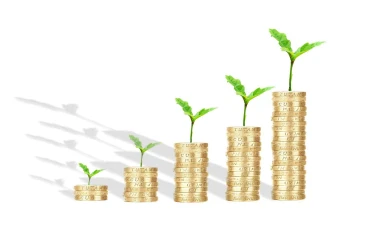
10 historical events that changed the world
number 10
is the fall of the Berlin Wall the Berlin Wall was a concrete barrier that separated East and West Berlin from 1961 until 1989. it was built by the East German government to prevent citizens from fleeing to the west and it became a symbol of the Cold War and the division between communist and capitalist ideologies however in the late 1980s pensions were high in East Germany due to economic struggles and political oppression this led to a series of peaceful protests and demonstrations calling for change including the opening of the Berlin Wall then on November 9 1989 something unexpected happened a government spokesperson announced that East German citizens would be allowed to cross the border freely and the Berlin Wall was opened people from both sides of the wall poured into the streets celebrating the end of an era and the possibility of a reunited Germany it was a joyous and historic moment that marked the end of the Cold War and the beginning of a new era of Hope and unity today parts of the wall still stand as a reminder of the struggles and triumphs of the past coming in at
number nine
is the discovery of fire was one of the most important discoveries in human history and it revolutionized the way we live it allowed us to cook food stay warm and even protect ourselves from predators the exact date of the discovery of fire is unknown but scientists believe it may have occurred around 1.5 million years ago early humans likely stumbled upon a natural fire Source such as lightning strikes or wildfires and realized its potential once humans learn to control and create fire they began to use it in many different ways they used it for cooking which allowed them to eat a wider variety of foods and gain more nutrients they also used it for warmth which made it easier to survive in cold climates early humans had to learn how to safely contain and control fire as well as how to use it for lighting and signaling they also had to learn how to protect themselves and their homes from accidental fires today we continue to rely on fire in many different ways from cooking and heating our homes to powering our cars and generating electricity
number eight
we have the assassination of Archduke Franz Ferdinand the assassination of Archduke Franz Ferdinand was one of the most significant events leading up to World War One Franz Ferdinand was the heir to the austro-hungarian Empire and his assassination by a Serbian nationalist on June 28 1914. it set off a chain of events that would ultimately lead to one of the deadliest conflicts in human history the assassination was not without its share of drama and intrigue the Assassin gabrillo princip was a member of a secret society known as the black hand and he and his accomplices had been planning the assassination for months on the day of the assassination princip spotted Franz ferdinand's car as it passed by and fired his gun hitting both Franz Ferdinand and his wife Sophie they both died soon after and the event sent shockwaves throughout Europe in the aftermath of the assassination Austria-Hungary declared war on Serbia and a series of alliances and treaties pulled other countries into the conflict the resulting World War One lasted from 1914 to 1918 and claimed the lives of over 16 million people
number seven
is the Industrial Revolution the Industrial Revolution was a period of rapid industrialization that took place from the late 18th century to the mid-19th century it marked a major turning point in human history and transformed the way goods were produced traded and consumed before the Industrial Revolution most goods were produced by hand in small-scale workshops or Farms but with the development of new technologies such as the steam engine power loom and spinning jenny Goods could be produced on a much larger scale and at a much faster rate this led to a surge in population growth urbanization and economic expansion people flock to cities to work in factories and Mills which led to the rise of new Industries such as textiles coal mining and iron production but the Industrial Revolution also brought about significant social and environmental changes the new factories and Mills were often dangerous and unhealthy places to work and workers faced long hours low pay and poor working conditions the rapid expansion of Industry also led to environmental degradation such as air and water pollution despite these challenges the Industrial Revolution paved the way for many technological advancements and innovations that still affect our lives today it led to the development of new transportation systems such as railroads and steamships which made it easier and faster to transport goods and people it also paved the way for the development of new materials such as steel which revolutionized construction and engineering
the number six
spot is the Renaissance the Renaissance was a cultural movement that took place in Europe from the 14th to the 17th century it was marked by A Renewed interest in the Arts literature and philosophy and paved the way for scientific and artistic advancements that continue to inspire and shape our world today during the Renaissance artists and thinkers began to question the traditional ways of thinking and sought to explore new ideas and perspectives this led to a surge in artistic creativity and experimentation with famous works of art such as Michelangelo's David and Leonardo da Vinci's Mona Lisa still celebrated today the Renaissance also saw significant advancements in science and technology with thinkers such as Galileo and Copernicus challenging traditional views of the universe and Paving the way for modern astronomy the printing press was also invented during this time allowing for mass production of written materials and the spread of knowledge across Europe and Beyond but the Renaissance was not without its challenges it was a time of great social and political upheaval with Wars plagues and religious conflicts shaping the course of history the rise of humanism a focus on individualism and human potential also challenged traditional religious beliefs and led to Social and cultural changes despite these challenges the Renaissance remains one of the most fascinating and inspiring periods in human history it reminds us of the power of art science and human creativity to shape the world around us and it continues to inspire and influence us today
thenumber five
we have the moon landing [Music] in 1961 President John F Kennedy announced that the United States would send a man to the Moon by the end of the decade at the time the technology to make such a mission possible did not exist but the determination and Ingenuity of the American people made it happen on July 20 1969 the Apollo 11 Mission successfully landed astronauts Neil Armstrong and Edwin Buzz Aldrin on the moon making them the first humans to step foot on another Celestial body it was a defining moment in human history and a testament to the power of human Innovation and exploration the Journey To The Moon was not without its challenges though the spacecraft had to travel over 238 855 miles to reach the moon and the astronauts had to navigate through the hazards of space including micro meteoroids and solar radiation but despite these challenges the Apollo 11 mission was a resounding success arms Strong's iconic words that's one small step for man one giant leap for mankind captured the awe and wonder of the moment and inspired generations of people around the world the moon landing also had significant scientific implications the mission brought back samples of moon rocks and soil which scientists analyzed to learn more about the moon's history in geology the mission also paved the way for future space exploration including the construction of the International Space Station and the exploration of Mars breaking
the numberfour
we had the invention of the printing press before the printing press books and written materials had to be copied by hand which was a time-consuming and labor-intensive process this made books rare and expensive and limited access to knowledge and education but in the 1440s a German Goldsmith named Johannes Gutenberg invented the printing press which allowed for mass production of books and other written materials the press used a movable type which allowed printers to quickly and easily create multiple copies of a document this invention revolutionized the way information was disseminated allowing for the spread of knowledge and ideas across Europe and Beyond it paved the way for the Scientific Revolution the Enlightenment and the development of modern education systems the printing press also had significant social and cultural implications it allowed for the spread of literacy which helped to break down social barriers and promote social Mobility it also paved the way for the development of new Industries such as journalism and Publishing but the printing press was not without its challenges it led to a flood of written materials including books pamphlets and newspapers which could be used for both good and bad purposes the spread of knowledge also challenged traditional religious beliefs and led to Social and cultural changes
thenumber three
we had the discovery of penicillin [Music] in 1928 Scottish biologist Alexander Fleming was conducting research on bacteria when he noticed something peculiar he had left a petri dish containing staphylococcus bacteria on his lab bench and had gone on vacation when he returned he found that a mold had grown on the dish and was killing the bacteria Fleming was curious about this discovery and conducted further experiments eventually identifying the mold as a strain of penicillium he realized that this mold was producing a substance that could kill harmful bacteria without harming human cells this discovery was the beginning of the development of penicillin which would go on to revolutionize medicine and save countless lives penicillin was used to treat soldiers during World War II and it was hailed as a miracle drug that could cure previously deadly infections such as pneumonia and syphilis the discovery of penicillin also had significant implications for medical research and development it paved the way for the development of new antibiotics and the study of microbiology which helped to improve our understanding of infectious diseases and how to treat them but the discovery of penicillin was not without its challenges [Music] overuse and misuse of antibiotics have led to the development of antibiotic-resistant bacteria which pose a serious threat to Public Health the development of new antibiotics has become more challenging and scientists are searching for new ways to combat infectious diseases despite these challenges the discovery of penicillin remains one of the most important and fascinating discoveries in human history the runner-up on our list
thenumber two
is the American Revolution the American Revolution was a time of great change and upheaval in American history and It ultimately led to the birth of a new nation the Revolution was fought between 1775 and 1783 and it pitted the American colonies against the British Empire the roots of the Revolution can be traced back to a variety of causes including economic grievances political tensions and a desire for greater autonomy and self-determination the famous phrase no taxation without representation captures the frustration that many American colonists felt about being taxed by the British government without having a say in the decision-making process the Revolution was marked by many famous events including the Boston Tea Party the Declaration of Independence and the battles of Lexington and Concord these events were fueled by a sense of patriotism and a desire for freedom and independence from British rule the Revolution was not without its challenges however the war was long and difficult and many lives were lost on both sides the new American Nation also faced many challenges in the aftermath of the war including economic struggles political disagreements and the need to build a new government in society from scratch the revolution established the United States as a new nation with its own government Constitution and set of values
thenumber one
spot on our list of the top 10 biggest historical events that changed the world is the invention of the internet the internet was invented in the late 1960s as a way for scientists and researchers to share information and collaborate on projects it was originally known as arpanet and was funded by the U.S Department of Defense over time the internet evolved and grew in popularity becoming a powerful tool for communication Commerce and social interaction it enabled people to connect with each other from all around the world and it transformed the way we access and share information one of the most fascinating aspects of the internet is its versatility and adaptability it has given rise to a vast array of new Industries and Technologies including e-commerce social media and online education it has also transformed the way we consume media with streaming services such as Netflix and Hulu allowing us to watch movies and TV shows on demand the internet has also had a profound impact on culture and Society it has enabled people to connect and share ideas in new and unprecedented ways and it has given a voice to marginalized communities
and underrepresented groups it has also given rise to new forms of creativity such as memes viral videos and online art despite the many benefits of the internet it also presents challenges and risks such as online harassment privacy concerns and the spread of misinformation however as with any powerful tool it is up to us to use the internet responsibly and ethically and to work towards creating a safer and more Equitable online space overall the top 10 biggest historical events that changed the world remind us of the power of human































